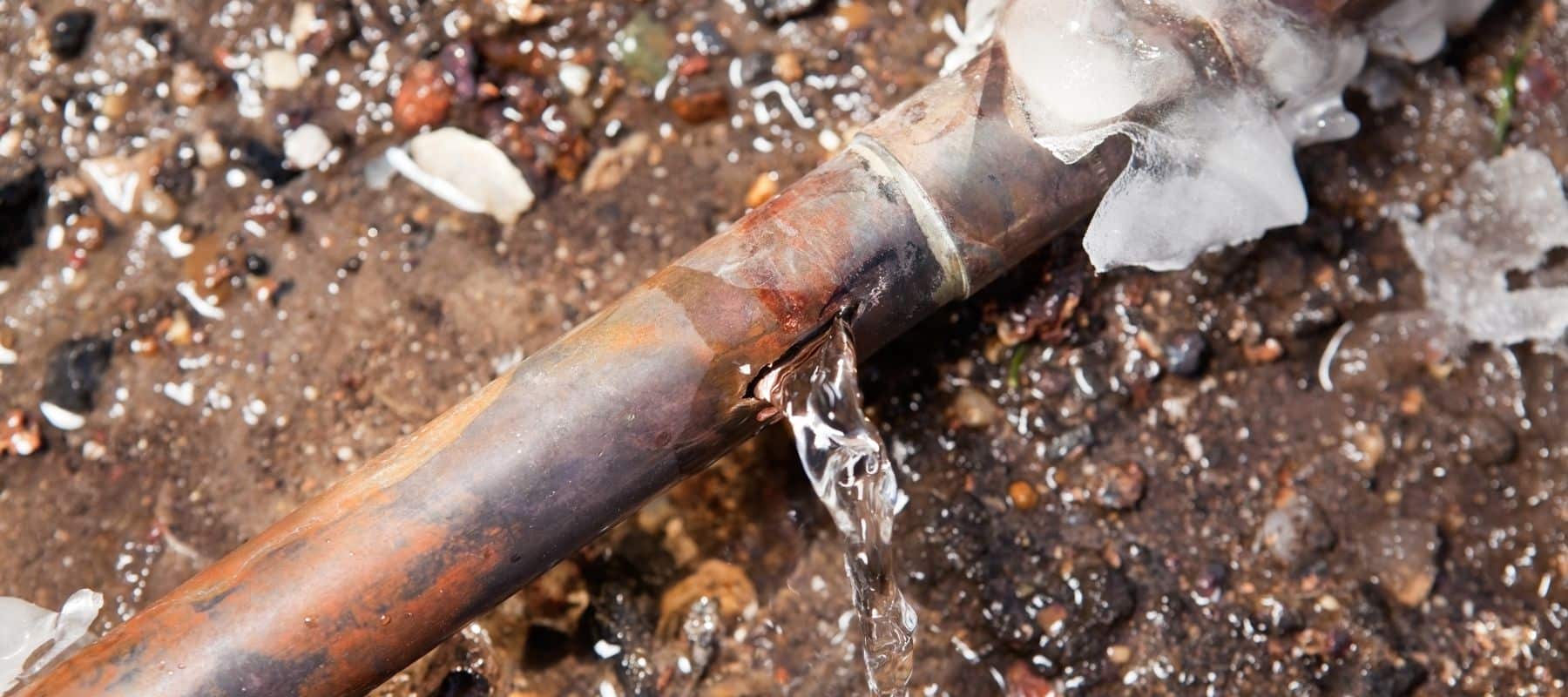Why Texas Homes Face Freeze Risks
San Angelo winters may be short, but the cold snaps can be harsh enough to freeze exposed plumbing. Homes in our part of Texas often have pipes installed through attics, garages and outer walls, places that rarely see insulation. When the temperature drops below freezing, any water left standing in those pipes can solidify and expand, putting pressure on joints and fittings.
That pressure often leads to bursts or leaks that go unnoticed until it’s too late. In the past few years, West Texas homeowners have seen firsthand how one night of extreme cold can cause widespread damage. That’s why preventing frozen pipes in Texas isn’t just about convenience; it’s about protecting your property from avoidable repairs.
Lone Star Contracting’s local tip:
We’ve been serving San Angelo since 2004, and the homes that take early precautions rarely see freeze damage. A little prevention in November saves a lot of repairs in February.
What Pipes Need To Be Covered During A Freeze
Not all plumbing is equally vulnerable. The most at-risk areas include:
Outdoor spigots and hose bibs — Cover with foam insulators or wrap them with towels and plastic.
Pipes in attics, basements and garages — Use foam pipe sleeves or heat tape to keep these lines above freezing.
Hoses and irrigation lines — Disconnect and drain before the first freeze warning.
Under-sink plumbing on exterior walls — Open cabinet doors to let warm air circulate.
Main shut-off valve — Know its location so you can quickly turn off the water if a pipe bursts.
Maintaining a home temperature above 55°F, even when you’re away, helps protect interior lines. These small actions make a big difference during those rare but dangerous cold nights.
Common Mistakes To Avoid During A Freeze
Many homeowners mean well but make quick fixes that don’t offer lasting protection. A few common missteps include:
- Using towels without insulation underneath – Towels alone absorb moisture and freeze faster.
- Leaving outdoor hoses attached – Water inside can back up into the spigot and freeze the pipe inside the wall.
- Relying on space heaters in crawl spaces – They can overheat wiring or cause safety hazards.
- Turning off indoor heat overnight – Even a few hours without warmth can freeze pipes in poorly insulated walls.
A licensed plumber from Lone Star Contracting can assess which lines are most vulnerable and recommend the best insulation method for your specific home layout.
When To Call A Professional
If you notice slow water flow, frost on visible pipes or hear banging sounds when running faucets, your pipes may already be starting to freeze. Avoid applying open flames or high heat directly to frozen pipes. It’s a serious fire hazard and often causes more damage than the freeze itself.
Professional plumbers have the right tools, like pipe thawing machines and heat cables, to safely restore water flow. At Lone Star Contracting, our San Angelo plumbing team performs inspections, insulation upgrades and emergency repairs throughout the colder months. With two decades of experience, we understand the unique challenges of West Texas homes and how to prevent small issues from turning into big ones.
Preparing Your Home Before The Next Cold Snap
The best time to prepare is before the first freeze warning. Schedule a pre-winter inspection to identify vulnerable areas, check insulation and test your shut-off valves. Our team can also assess your water heater and leak detection systems, ensuring your home is ready for the season ahead.
Don’t wait for the next freeze to catch you off guard. Contact Lone Star Contracting in San Angelo today to schedule your winter pipe inspection and keep your plumbing protected all season.
FAQ’s
Does San Angelo Get Cold Enough To Freeze Pipes?
Yes. Temperatures can drop below 32°F during winter cold fronts, especially overnight. Even brief freezes can cause damage to exposed or poorly insulated pipes.
What Temperature Should I Keep My Home At During A Freeze?
Keep your thermostat at or above 55°F even when you’re away to prevent interior pipes from freezing.
Can I Use A Hair Dryer To Thaw Frozen Pipes?
It’s possible for small areas, but it’s safer to call a licensed plumber to avoid cracking the pipe or causing electrical hazards.
How Often Should I Check My Plumbing Insulation?
Inspect insulation every fall, particularly around outdoor spigots, garage pipes and attic lines. Replace worn or damaged sleeves immediately.
What Should I Do If A Pipe Bursts In My Home?
Turn off your main water valve right away and call Lone Star Contracting for emergency service. Acting quickly minimizes water damage and repair costs.




